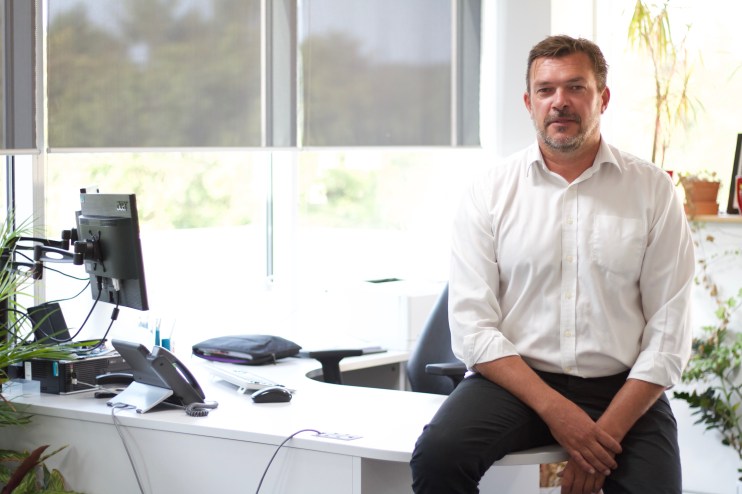Exclusive: Utilita boss slams government meddling in energy market

The government should focus on protecting vulnerable households through established welfare schemes rather than tampering further in the market, argued Utilita Energy’s (Utilita) chief executive Bill Bullen.
The energy price cap is expected to rise by as much as 50 per cent in April, increasing to £2,000 per year to reflect soaring wholesale costs, with the potential for a further hike this coming autumn.
Downing Street has been weighing up a range of potential measures to protect energy consumers from rising costs, with reported plans varying from one-off £500 household payments to full-scale industry loans.
Speaking to City A.M., Bullen cautioned against protecting the energy market from the reality of rising prices, especially if higher wholesale costs were now baked in to the sector.
Instead of any additional market mechanisms, he recommended expanding the Warm Home Discount scheme, and reintroducing the extra £20 uplift in universal credit.
The chief executive also suggested the government should act swiftly rather than devising unfeasible plans with a likely price hike less than three months away.
He said: “We would prefer the government to act, rather than come in with a behind the scenes scheme, trying to insulate the entire market from high wholesale prices. That could be a scheme you never get out of. It might not be a short-term thing: it might be a long run thing.”
Bullen also warned that loans and financial packages could be a “drug that everybody just gets addicted to”.

Consequently, he questioned calls from Octopus Energy’s chief executive Greg Jackson for costs to be spread over time, with Treasury funding remaining as a potential last-resort option.
He explained: “The Treasury has got a lot of demands on its money and you’re basically asking them to potentially write an unending chequebook.”
Such plans would, in Bullen’s view, result in companies not passing “accurate price signals to customers.”
Bullen pushes for changes to consumer behaviour
The Utilita boss also felt it would be a mistake to spread costs because higher prices could act as a further incentive for households to adjust their energy usage, with reduced consumption both cutting down energy bills and boosting the transition towards a greener economy.
Ovo Energy recently faced consumer blowback on social media for offering unhelpful solutions to its customers, such as cuddling pets and hula-hoop competitions to keep warm, while E.ON suffered the heat online after supplying pun-laden socks to its customers.
Bullen recognised these were examples of unhelpful consumer guidance, but he believed there was a place for practical pointers such as lowering thermostats to 21°C, not leaving TVs on standby and buying heavier curtains.
This was because consumer behaviour remained a huge factor in people’s energy costs.
“There are behavioural changes that make a significant difference to your carbon footprint and your energy bill, and it’s absolutely fair for supply companies to be saying that.”
Utilita Energy was founded in 2003, and has enjoyed marked growth over the past eight years, growing from 25,000 customers to 800,000 prior to the market shock last year.
During the current market crisis, it swallowed up a further 6,000 consumers from fallen firm Omni Energy two months ago, and has stayed afloat even as larger suppliers such as Bulb Energy have collapsed into administration amid soaring wholesale costs.
Bullen was unfazed by the idea of the market being reduced from its peak of 80 suppliers in 2018 to a smaller collection of firms.
While he wasn’t in favour of returning to a situation where the Big Six had a 97 per cent share of the market, he preferred a reformed industry with focus on switching suppliers to the expanded industry prior to the current crisis.
“I don’t think it’s in the consumer’s interest to go back to having 80 suppliers all claiming to be very different, but none of them really introducing any genuine innovation.”
He continued: “I think if you look at the challenges on the energy business over the next decade – the journey to net zero is going to require a very different relationship with customers.”
In his view, this would mean longer term arrangements with customers, with more attention on investing in customers homes to increase insulation and energy efficiency.
Bullen concluded: “That’s where the genuine innovation will be and that won’t happen if you’ve got customers switching, switching and switching like mad.”